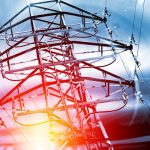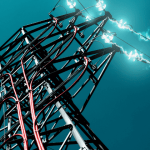
· Distribution, transmission & generation of electric power
· The devices related to this field including transformers, electric generators and motors
· AC and DC power and the conversion between them
· The development of other power systems including aircraft
The very basic concepts of Power System Engineering were actually introduced in 1831 by Michael Faraday when he discovered the principle of Electromagnetic Induction. The world’s first power station was built in 1881 at Godalming in England. It consisted of seven Siemens arc lamps that were supplied with AC with 250 volts. It was further advanced to Steam-Powered electric power station in 1882. It was called the “Pearl Street Station”. The power industry kept on flourishing rapidly and many Power Companies came into being in a very short period of time in Europe and United States. Further developments were made in the 20 and the 21st century. The power systems were getting more efficient with passing time and have become a core area of electrical engineering field
What is Electric Power?
In technical terms, it is the mathematical product of voltage and current. Many devices use AC power while others use DC power. For example, digital equipment like computers use DC power and air conditioners, refrigerators and pumps use AC power.
Practical Uses
In many areas of the world, the governments maintain an electric network that can connect a number of electric generators by means of Power. This combination of Generators is called a “Power Grid”. Users can buy the electricity directly from the Grid.
The basic component of Power transmission is a Transformer. Transformers can convert power from higher to lower voltages and viceversa. There are basically two types of transformers namely, Step-up and Step-down transformers. Electrical Substations are always present in a Power Grid to convert power to High voltages before transmission and to lower voltages after transmission.
Basically Power Engineering is a network of Inter-connected parts which convert different types of energy to electrical energy.
There are three basic subsystems of of Modern Power namely,
· Transmission subsystem
· Generation subsystem
· Distribution system
These three systems produce the electricity, transmit it to load centers and transmit the power to the customers. Power generation means that the power is being transformed into electrical energy. Transmission system provides a means transporting electrical energy.
There are two types of transmission systems namely
· build transmission system
· sub-transmission system.
Power distribution system basically transports power from the transmission system to the user. As network systems are expensive so the distribution systems are normally radial. Voltage regulators, capacitors and relays are all components of the Control Equipment.


